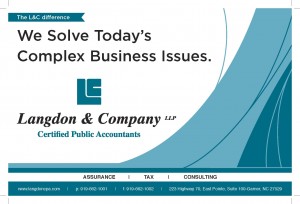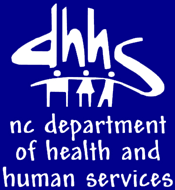Charitable Solicitation License Refresher
By Rebecca Lunn
In the nonprofit arena, charitable solicitation licenses are a necessity for certain fundraising efforts. If you are an organization or individual that asks the public for contributions or donations to support a charitable purpose, a charitable solicitation license (“CSL”) is needed, unless specifically exempt by law. As many states have laws regulating the solicitation of funds for charitable purposes, it is important to check the requirements for each state your organization operates in to ensure compliance.
For organizations based in North Carolina whom are currently registered with the NC Secretary of State (SoS) Charities Bureau, keep in mind the following renewal requirements:
· The NC SoS notifies by mail all organizations who already hold licenses 65 days prior to their annual renewal date of the renewal requirements. Typically, each organization files its own CSL renewal directly with the NC SoS.
· The NC SoS has published on its website that all organizations who have a current CSL should disclose its licensure status, such as including a statement with the following wording on all solicitations: “Financial information about this organization and a copy of its license are available from the State Solicitation Licensing Branch at 919-807-2214 or 888-830-4989 for NC Residents.”
· Licenses are generally due 4 ½ months following the fiscal year-end date of the organization; however, all organizations in “current” standing with the NC SoS receive a 60-day extension without having to request it. For example, a calendar year organization in current standing has a CSL renewal due date of July 15th in reliance on the automatic 60-day extension. Absent current standing status, an organization will be subject to late filing penalties upon its eventual updating of its record with the NC SoS.
· If more time is needed to file the CSL renewal, an additional 30-day extension is available to the organization by filing a copy of the Federal Form 8868 (extension for IRS Form 990) prior to the expiration of the automatic 60-day extension. As a result, a calendar-year organization may, by timely-filed request, extend the period of time for CSL renewal to August 15th.
· When the CSL renewal is actually prepared, organizations must comply with the annual financial disclosure requirements via submission of one of the following: (1) a copy of the duly executed Form 990, (2) copy of the Audited Financial Statements, or (3) completing a NC SoS “Annual Financial Report” signed by 3 members of the organization’s board of directors, finance committee or audit committee.
If you are an organization who needs assistance or has additional questions on the Charitable Solicitation License requirements or renewal process, our accounting professionals at Langdon & Company would be glad to assist. Please contact us at 919-662-1001 for further information.
Also, for further information specific to the North Carolina filing requirements, please visit https://www.sosnc.gov/csl/ThePage.aspx.
Rebecca [email protected] is an Audit Senior who works primarily with non-profit organizations.














 The line between liabilities and equity is also critical in measuring income. So companies began to take advantage of manipulating their debt and equity and therefore manipulating their net income. Neither changes in the values of a company’s outstanding equity instruments or transactions between a company and its owners, affect reported income. Whereas, interest payments and at least some changes in the values of liabilities actually do affect reported income.
The line between liabilities and equity is also critical in measuring income. So companies began to take advantage of manipulating their debt and equity and therefore manipulating their net income. Neither changes in the values of a company’s outstanding equity instruments or transactions between a company and its owners, affect reported income. Whereas, interest payments and at least some changes in the values of liabilities actually do affect reported income.


